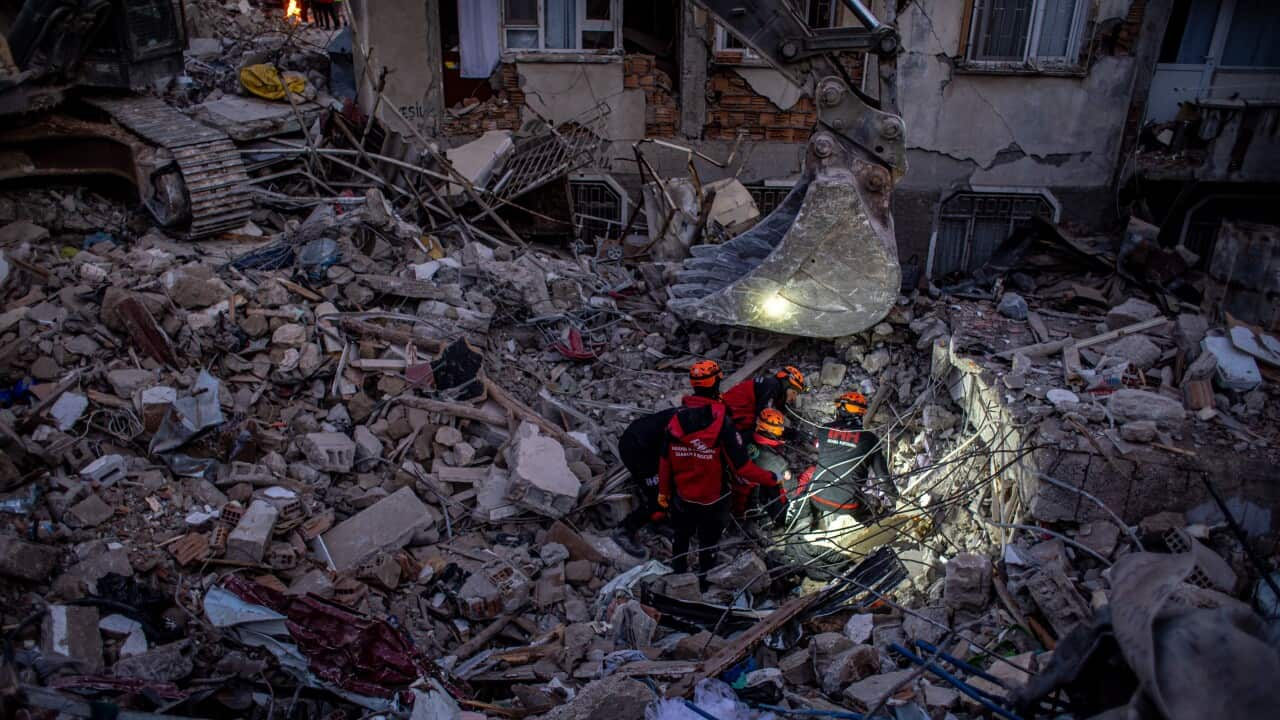Key Points
- Three more people have been rescued alive from under collapsed buildings in Türkiye after spending 11 days trapped.
- One of the three rescued was 14 years old.
- The earthquake has killed more than 45,000, left millions homeless, and sparked a huge relief effort.
Rescue teams pulled three people alive from under collapsed buildings in Türkiye on Friday, 11 days after an earthquake that has killed more than 45,000, left millions homeless, and sparked a huge relief effort.
Mosques around the world performed absentee funeral prayers for victims in Türkiye and Syria, many of whom could not receive full burial rites given the enormity of the disaster.
While many international rescue teams have left the vast quake zone, survivors were still emerging from under a multitude of flattened homes, defying all the odds.
Hakan Yasinoglu, in his 40s, was rescued in the southern province of Hatay, 278 hours after the 7.8 magnitude earthquake struck in the dead of night on 6 February, the Istanbul Fire Brigade said.
Earlier, Osman Halebiye, 14, and Mustafa Avci, 34, were saved in Türkiye's historic city of Antakya, known in ancient times as Antioch. As Mr Avci was carried away, he was put on a video call with his parents who showed him his newborn baby.
"I had completely lost all hope. This is a true miracle. They gave me my son back. I saw the wreckage and I thought nobody could be saved alive from there," his father said.
An exhausted Mr Avci was later reunited with his wife Bilge and daughter Almile at a hospital in Mersin.
I had completely lost all hope. This is a true miracle. They gave me my son back.Mustafa Avci's father
Experts say most rescues occur in the 24 hours following an earthquake. However, a teenage girl was saved 15 days after Haiti's massive 2010 quake, giving hope that more people might yet be found.
The death toll in Türkiye now stands at 39,672, making it the worst disaster in modern Turkish history. But this number is expected to rise given some 264,000 apartments were lost in the quake and many people are still unaccounted for.
In neighbouring Syria, already shattered by more than a decade of civil war, authorities have reported more than 5,800 deaths. The toll has not changed for days.
The bulk of Syria's fatalities have been in the northwest, an area controlled by insurgents who are at war with President Bashar al-Assad - a conflict that has complicated efforts to aid people affected by the earthquake.
The sides clashed overnight for the first time since the disaster, with government forces shelling the outskirts of Atareb, a rebel-held town badly hit by the earthquake, the Syrian Observatory for Human Rights reported on Friday.
Reuters could not independently verify the report.
Neither Türkiye nor Syria have said how many people are still missing following the quake.
For families still waiting to retrieve relatives in Türkiye, there is growing anger over what they see as corrupt building practices and deeply flawed urban development that resulted in thousands of homes and businesses disintegrating.
One such building was the Ronesans Rezidans (Renaissance Residence), which keeled over in Antakya, killing hundreds.
"It was said to be earthquake-safe, but you can see the result," said Hamza Alpaslan, 47, whose brother had lived in the apartment block.
"It's in horrible condition. There is neither cement nor proper iron in it. It's a real hell."
Türkiye has promised to investigate anyone suspected of responsibility for the collapse of buildings and has ordered the detention of more than 100 suspects, including developers.
In Kahramanmaras, the southeastern Turkish city that was closest to the epicentre, around 1,000 people gathered after midday outside the central Erzurumluoglu Mosque, which risks collapse, to join the absentee funeral prayers.
"This is something every Muslim needs to do," said Ahmet Akburak, an engineer who lost seven of his relatives in the quake.
"We are glad we were able to get their bodies out. But a lot of people became one with the debris."
Aid organisations say the survivors will need help for months to come with so much crucial infrastructure destroyed.
Thousands of Syrians who had sought refuge in Türkiye from their country's civil war have returned to their homes in the war zone - at least for now.



